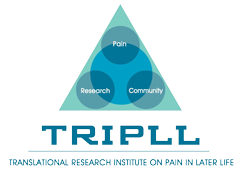Chronic pain and friendship among middle-aged and older U.S. adults
Friendship plays a vital role in individuals’ well-being across the life span. Recent studies suggest that friendship in adulthood and older age is as important as family ties in predicting psychological well-being, physical health, and cognitive function. A small but growing number of studies examine the reverse association: how health conditions shape the ability to develop and maintain friendships in later life. Thus far, studies in this area come to seemingly opposite conclusions: some suggest that declining health leads to reduced engagement with nonfamily members (e.g., Sander, Schupp, & Richter, 2017), while others suggest that onset of serious conditions such as cancer leads to activation of social networks, reflected in a higher number of friends (e.g., Latham-Mintus, Forth.). How changes in health affect friendship may depend on the specific types of health conditions and friendship outcomes examined. This article empirically tests whether chronic pain indeed has a negative impact on older adults’ friendships, or whether it instead inspires the same social network activation seen in studies of objectively-verifiable health problems such as cancer.
Yang Y, Grol-Prokopczyk H. Chronic pain and friendship among middle-aged and older U.S. adults. 2020 Oct 29]. J Gerontol B Psychol Sci Soc Sci. 2020;gbaa185.
Click here to read full article
